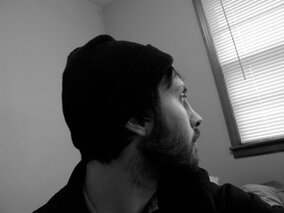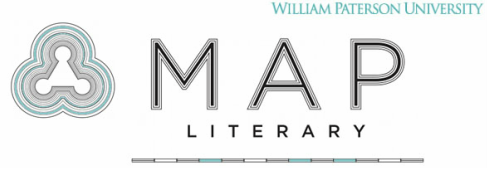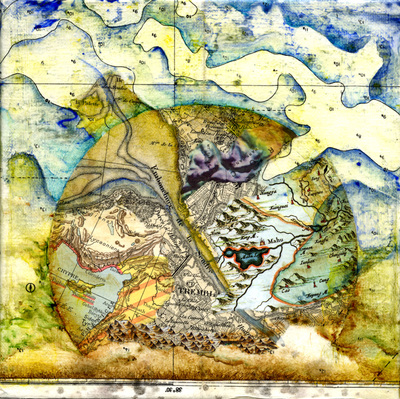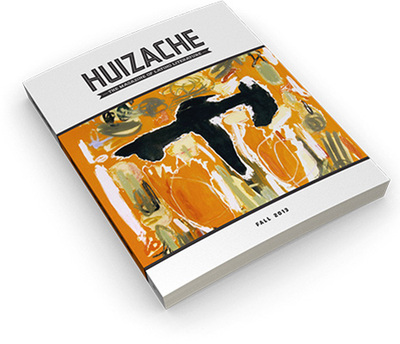CHRISTOPHER LINFORTH
Zia
There is part of our sister we cannot see. We trail her into the house, into her bedroom, shadow her into the boxy en-suite. She strips off her bright orange sundress, lets it drop to the marbleized vinyl floor. She glimpses the mirror and unhooks her bikini top, then fingers the bottoms. We try to look. But her pale body is turned away. We edge through the doorway. Rolls of fat rib her belly. She bends over and pulls out the scale; she stands on the platform, closes her eyes. In her moment of blindness, we sneak behind her, hide in the shower cubicle, draw the frosted curtain in front of us. Through the translucent plastic, we watch our sister peering at the dial of the scale. We see the inverse of the numbers she sees. Below her breasts, a glyph tattoo inks a section of skin: lines radiate from an invisible circle. The symbol resembles a star, but we know it is not a star. A year ago she disappeared to New Mexico, then she came back and said she had met someone in Taos. Her skin had browned. She had colorful beads twisted into her hair. She spoke of the man from the Pueblo, his stall of fry bread and clay pottery. She told us she was a stage of life ahead of us. Her words puzzled us. We eavesdropped on her calls, read her emails and postcards, thumbed through her texts. They talked in code; they mentioned love and birth and running away. We kept reading until she stopped communicating with the man, with our parents, with us. Now, we pull back the curtain. We look into the center of the circle, for the hole beneath the glyph, the missing part of her, the place where our sister used to be.
Copyright © July 2020 Christopher Linforth

Christopher Linforth has recently published fiction in Fiction International, Hotel Amerika, Epiphany, Notre Dame Review, Day One, and Descant, among other magazines. He has been awarded fellowships and scholarships to the Sewanee Writers’ Conference, Vermont Studio Center, and the Virginia Center for the Creative Arts.









